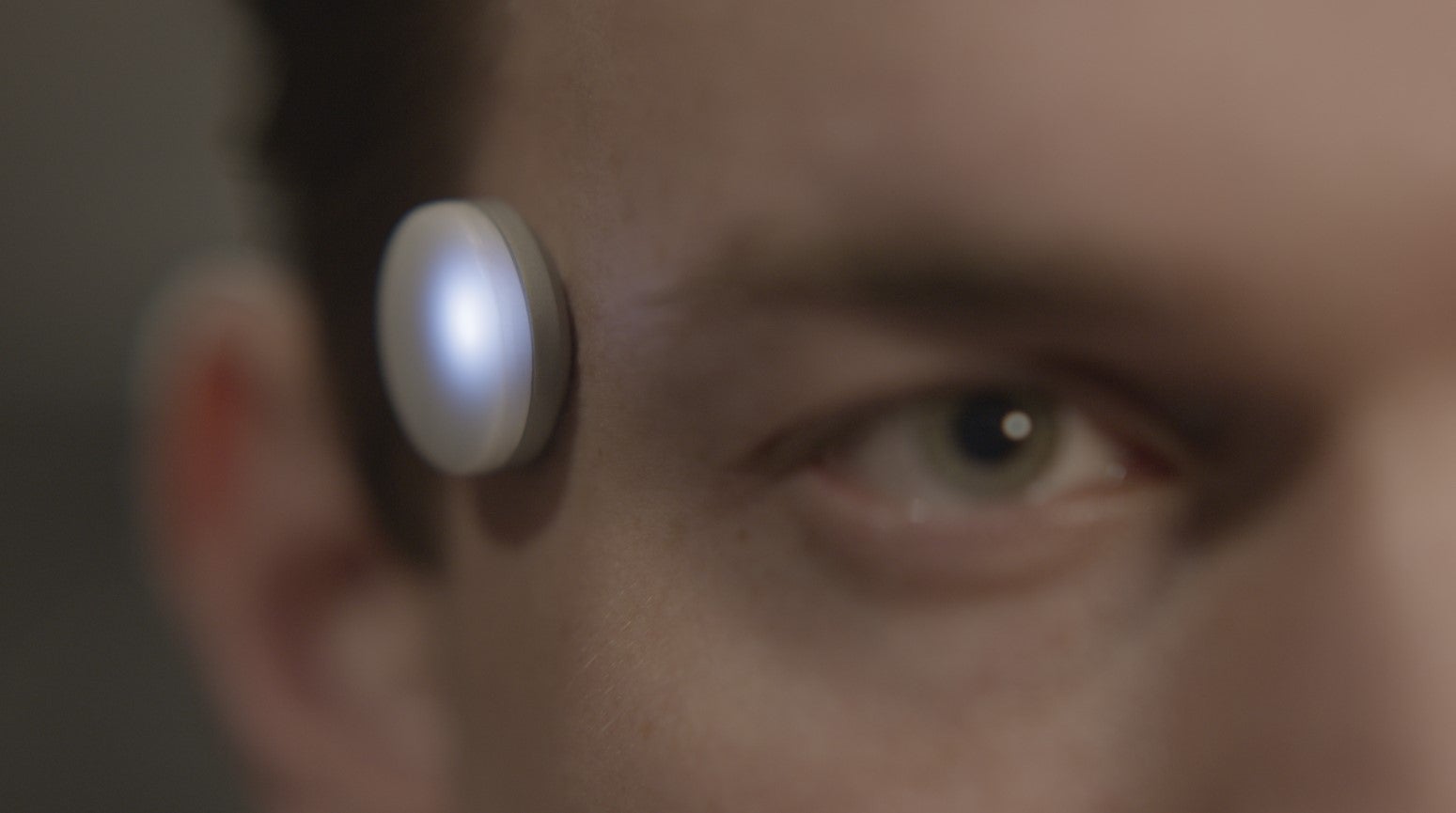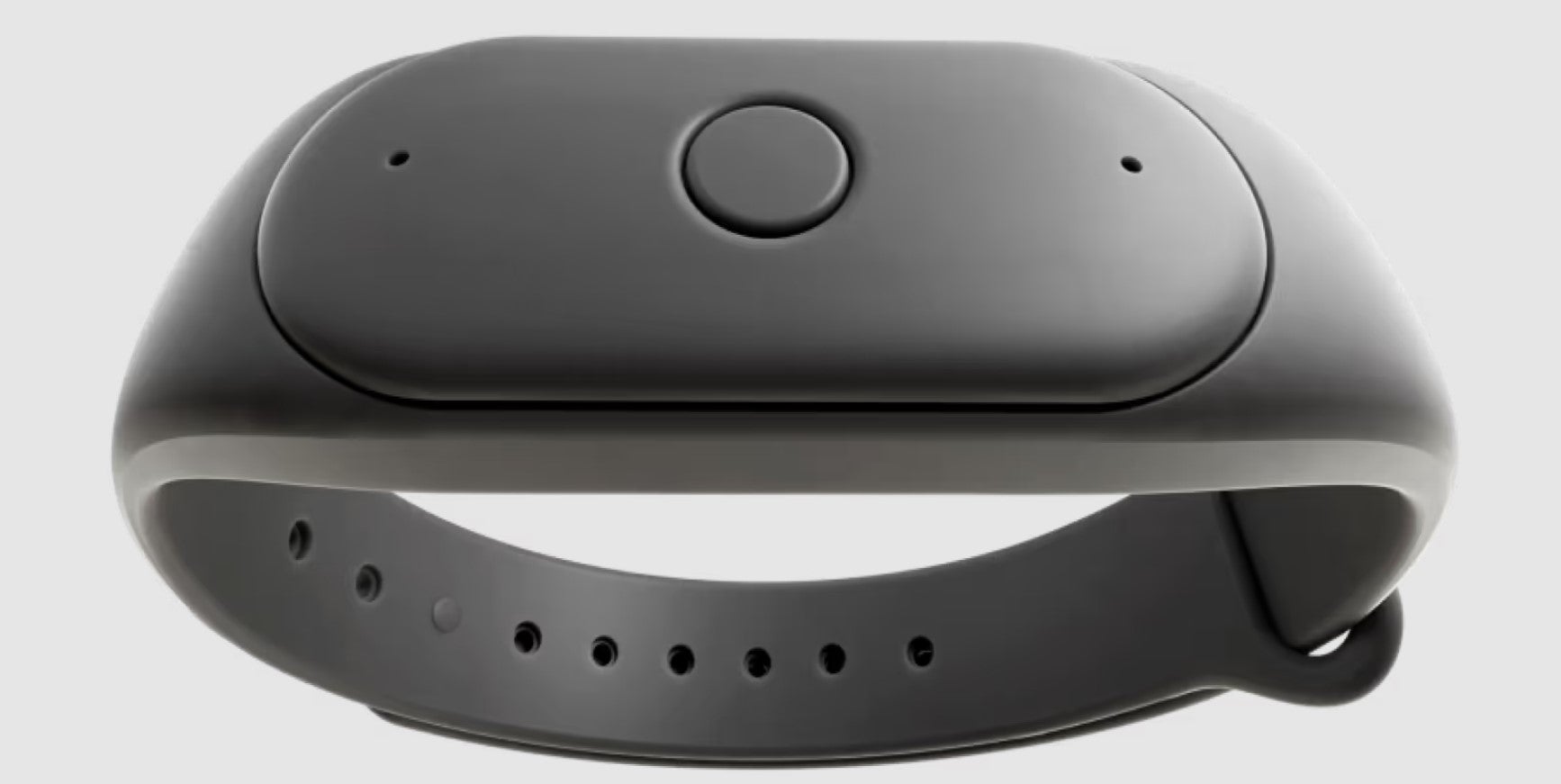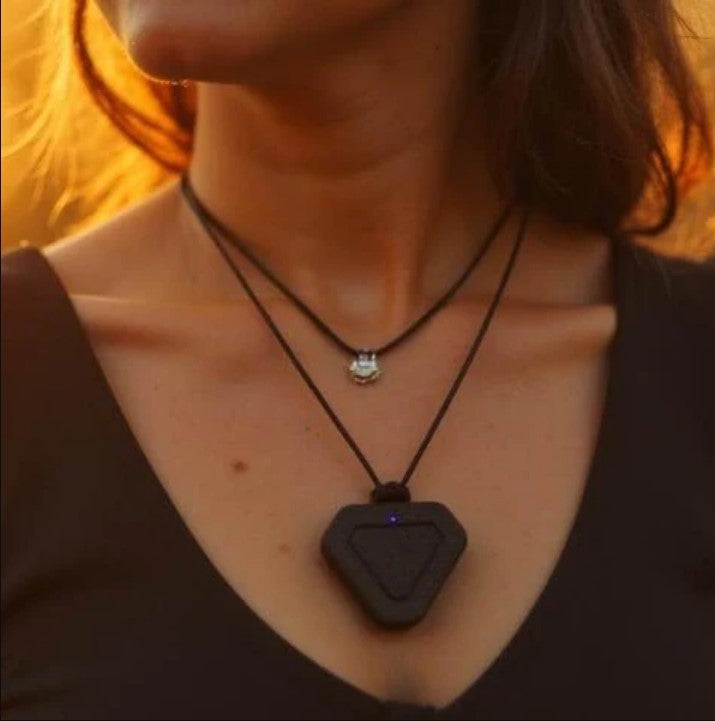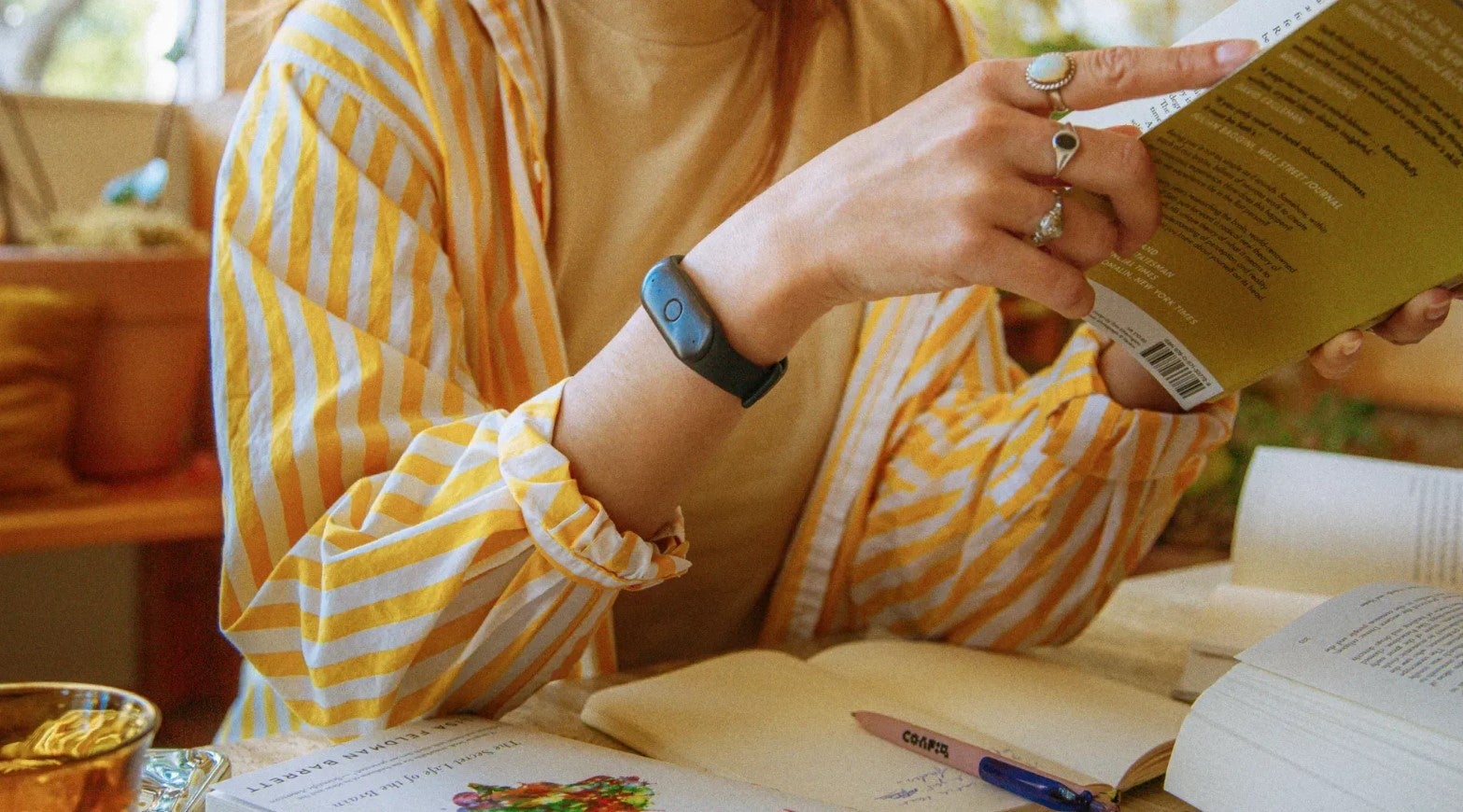Why you could soon be wearing a Chinese voice-logger that records everything you say and do
‘Life recorders’ are being invested in by all the big AI players, with their champions saying the notes and prompts made from conversations you have will help with everything from studying to remembering your friend’s birthday. Jonathan Margolis tries one out and sees a slightly terrifying future...


One of the most depressing phrases in the world, whether you’re saying it or hearing it, must surely be “But I told you...” Arguments about who said what, when, to whom – and even in what tone of voice – occur with tiresome regularity from childhood through to relationships to the workplace. For such occasions, I have often wished whimsically that there was such a thing as an always-on life-recorder, to archive every conversation I have so that disputes can be settled definitively.
Well, with the explosion in AI, there are now at least four viable, life-recording, dispute-settling products – all tiny, wearable, 24/7 voice-loggers that don’t only record everything around them, but transcribe it, too, in any major language.
The mini microphones even provide a bullet-point executive summary of every word spoken during the day, plus a mind map and a to-do list based on your conversations.
For the past few weeks, I’ve had clipped to my shirt one of the first wearable, 24/7 voice-loggers to come out, the £169 NotePin “memory capsule” from Plaud, a Chinese-run company that, a little bizarrely, is based in a one-horse cowboy town in Wyoming.
Here, in the form of an oversized Tic Tac, is a sample of the brave new world of life-recording. The following is the recorder’s summarisation of a recent Saturday morning at home with my partner, Sarah Jane.
Meeting summary: Garden maintenance, political climate, weight loss, dining experiences, dental care.
Garden maintenance: Discussion about tasks related to garden maintenance, including cutting down plants and dealing with roots. Emphasis on the need for guidance and proper technique to avoid damaging desirable plants.
Political climate: Discussion on the political climate, including reactions to Trump, the British perspective, and the impact on businesses and individuals.
Weight loss: Brief mention of personal weight-loss progress, with a focus on changes in appearance and health.
Religious views on Trump: Discussion on the religious support for Trump and the perceived contradictions in Christian support for him.
Travel and acommodation costs: Discussion about the high cost of accommodation in New York and the use of Airbnb as a more affordable option.
Dining and restaurant experiences: The participants discussed various restaurant recommendations, and shared their experiences and opinions on the food quality, ambiance, and pricing of these establishments. The speaker discusses dining experiences with friends, highlighting a situation where a friend got upset over a dinner payment. The conversation touches on hospitality and the dynamics of hosting guests.
Dental appointment: A conversation about a dental appointment, discussing adjustments made to dental work and advice on post-treatment care.

The smoothly sculpted NotePin that is recording all of this weighs under 25g, and can be worn as a pendant, a wristband, or a rather modernist brooch. It can record up to 20 hours of your life on one charge. A friend in the US, meanwhile, has been testing an even slicker, more advanced life-recorder: the £385 Limitless device, from a San Francisco company that is staffed, they say, by people with experience at Apple, Google, Meta, Amazon and SpaceX.
Limitless, with $33m (£26m) behind it, has the ChatGPT founder Sam Altman as an investor – this kind of thing is clearly the future for a lot of ultra-geeks. The Limitless team seem to have spent a lot of brainpower honing a marketing message to soften and justify the not-uncreepy proposition of life-recording.
“Our vision is to free the human mind from its biological limitations,” they coo. “We create tools that augment – not replace – human intelligence with artificial intelligence to overcome the brain’s limitations. Improving memory and focus are just the beginning.” The meeting-notes function breaks down every single conversation you have down to the second.
At least two other contenders have suddenly appeared on the market, making life-recorders one of the main sleeper-tech trends to watch. And they could also have serious real-life applications.

Like much of the “intrusive” tech we happily welcome into our lives with little thought, they offer the sort of unrivalled convenience that, once we get used to it, becomes hard to give up. One benefit promoted is that these devices help students record and annotate lectures and seminars; another is that they can help people with dementia or learning impairments to remember key things in their lives, and gently suggest what they should be doing. (“It’s Amy’s 10th birthday next week. She’s your granddaughter. You mentioned yesterday you need to get her a present and call her. I’ll remind you again tomorrow.”)
Some of the new wave of devices are quite cheap to buy, and make the bulk of their money from subscriptions. The Bee Pioneer, for example, costs just $49.99 (£38). The $89 (£68) Omi can be worn as a pendant or, more disturbingly, stuck to the side of your forehead like a tiny outboard brain.
The legal ramifications of a new technology that is currently just over a year old present a clear case of there being more questions than answers.
The law has always struggled to keep up with technology – take Britain in the late 19th century, when there were no traffic laws, speed limits or driving licences despite the rising number of cars on the road. Driving tests only came in in 1935, after years of carnage and preventable accidents.
Today, even technologies that have been around for a few years – think social media, self-driving cars, drones, biohacking, cryptocurrency and much more – are almost lawless.

No wonder, then, that with technology that enables us effectively to bug ourselves and get a print-out of everything we say – as well as generating data that will have to be managed somehow – the law is in many ways unclear.
One key aspect is surprising (but still legal). Secretly recording your conversations for personal use without telling the people you speak with that you’re recording is allowed, under the Regulation of Investigatory Powers Act 2000 (RIPA).
The police have the power to use body-worn cameras, of course, subject to certain constraints. And people working for businesses can wear them for work purposes so long as they warn you. Cashiers at my local Sainsbury’s have them, with a small yellow and black label showing a camera logo and the words “video and audio”.
There’s a whole other ethical dung-heap involved with these new-wave recorders, which is the immense cloud storage of your recordings
The interpretation of “personal use” in relation to your unconstrained 24/7 recording, though, is untested. Could you use a recording of, say, a partner being abusive as evidence in court? Not clear. The best a lawyer could say is “probably”, or “Let’s give it a try” – on the grounds that a judge couldn’t unhear what was played in court, even if it were ruled inadmissible.
In Britain, sharing your recordings is similarly a muddy area, covered by the Data Protection Act 2018 and the all-encompassing GDPR – the General Data Protection Regulation. So if you wanted to record all the conversations you have at work, you would need consent. Secret recording in a professional setting could also be considered a breach of trust, or misconduct.
But what if your secret, data-protection-breaching recording of your boss captured them being racist, sexist, plotting industrial espionage, or planning to defraud customers? That would depend on the police, the CPS, the judge and the jury. As it is, it’s uncertain whether the police would accept a covertly obtained, self-bugging recording as evidence of anything – or if they would even know what the device was. The technology, as we know, goes back to approximately last July.

There’s a whole other ethical dung-heap involved with these new-wave recorders, which is the immense cloud storage of your recordings, especially if all your conversations end up on Chinese servers. Plaud say theirs are kept in the US, but these days, that’s less reassuring than it was.
It’s never been established for certain what the likes of Amazon and Google do with recordings from their smart speakers when they are in deaf mode. When we are all voluntarily “wearing a wire” on the bus, at work and down the pub, will advertisers be able to buy access to our conversations and have an AI agent trawl them for ideas of what to sell us? Again, who knows?
Whether you see the dawning age of the life-recorder as incredibly useful or terrifying, there could be yet another truly spooky development to come – devices that record and transcribe everything you think, and even what everyone around you is thinking.
Nikita Shevchenko, founder of the Omi, has plans to develop it so that ultimately it will know what’s on your mind – and he has already had some very limited success, getting a device to understand two words he has merely thought.
Brain-reading proper is still largely science fiction, but there are a few emerging technologies, such as brain-computer interfaces, which aim to decode thoughts. One such is the Neuralink, which requires an implant in the brain – and with Elon Musk as Neuralink’s founder, it’s hard to imagine what could possibly go weird.
So in case you’re thinking a life-recorder could lead to clarity, peace and harmony at home and at work, you might be advised to be careful what you wish for.



Join our commenting forum
Join thought-provoking conversations, follow other Independent readers and see their replies
Comments